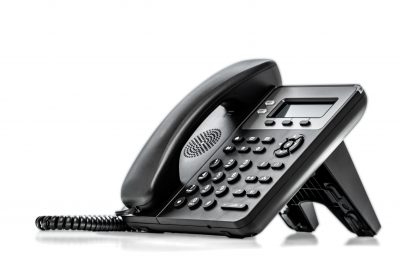
Business Lines
POTS Business Lines offer essential voice communication capabilities, ensuring reliable and uninterrupted connectivity.

POTS Business Lines offer essential voice communication capabilities, ensuring reliable and uninterrupted connectivity.

With Centrex, enterprises can eliminate the need to maintain their own on-premises telephone switchboard equipment and can access a wide range of features.

Primary Rate Interfaces service allows businesses to establish multiple lines with robust voice and data capabilities over a single connection, perfect for larger organizations.
When it comes to delivering POTS services to businesses, organizations, and government agencies across North America, Granite is the undisputed leader. Granite has pioneered the one-stop solution model in the telecom industry, offering One Bill; One Point of Contact for Ordering; and One Dedicated Premier Service Contact.

Centrex, a centralized communication solution, offers businesses cost-effective, customizable features for local to international calls. Granite’s advisors assist customers in choosing the right options to boost their communication and business growth.

With PRIs, businesses can simultaneously make and receive local, long distance, and international calls. It is a reliable and cost-effective solution for organizations that require a high volume of telephony services.

Granite’s extensive long-term wholesale contracts with incumbent carriers throughout the United States and Canada allow us to offer exceptional pricing on all our Analog Voice products, allowing you to focus on your bottom line.


With Granite, you can say goodbye to the hassle of dealing with multiple vendors and complicated billing processes.
We offer a seamless and streamlined experience, providing you with a 360-degree view of your services across North America and One Bill for your complete business solution.
This consolidated approach saves you time, money, and eliminates the frustration of managing multiple accounts.
No. Granite offers POTS and Analog Consolidation services through strategic reseller agreements with all the major North American telecommunication providers.
These long-term partnerships allow Granite to offer our customers best-in-class service and pricing.
Please find the various calling types:
Local (LOC1) – A Local call is from point A to point B within the Local Calling Area as determined by the ruling local tariff.
Regional Toll (LOC2) – A Regional Toll call is from point A to point B within the same LATA (Local Access and Transport Area) and outside the Local Calling Area.
Intrastate (IA) – An Intrastate call is classified as Long Distance from point A to point B within the same State, but outside the same LATA (Local Access and Transport Area) and outside the Local Calling Area.
Interstate (IE) – An Interstate call is classified as Long Distance from point A to point B not within the same State and outside the Local Calling Area.
Extended Area (EX) – An Extended Area call is classified as Long Distance from point A to point B where point B is located in a U.S. Territory, Indigenous Reservation, or Rural Area where rates are higher.
Canada (CAN) – A call from point A in the United States to point B in Canada.
(CAN2) – A call from point A in Canada to point B in the United States.
International (IN) – A call from point A in the United States to point B in a country outside of the North American Number Plan Administrator (NANPA). Rates are determined at the International Dialing Code level.
(IN2) – A call from point A in a country outside of the North American Number Plan Administrator (NANPA) to point B in the United States. Rates are determined at the International Dialing Code level.
Directory Assistance (DA2) – A call from point A to 411.
(DA1) – A call from point A to 411 outside the Local Calling Area.
Toll-Free calling is billed to the owner of the Toll-Free Number (TFN). It may be rated using any of the usage types, where point A is the TFN owner and point B is the originating caller.
Behind every TFN, there is a Local Routing Number (LRN) which is used to determine the usage type.